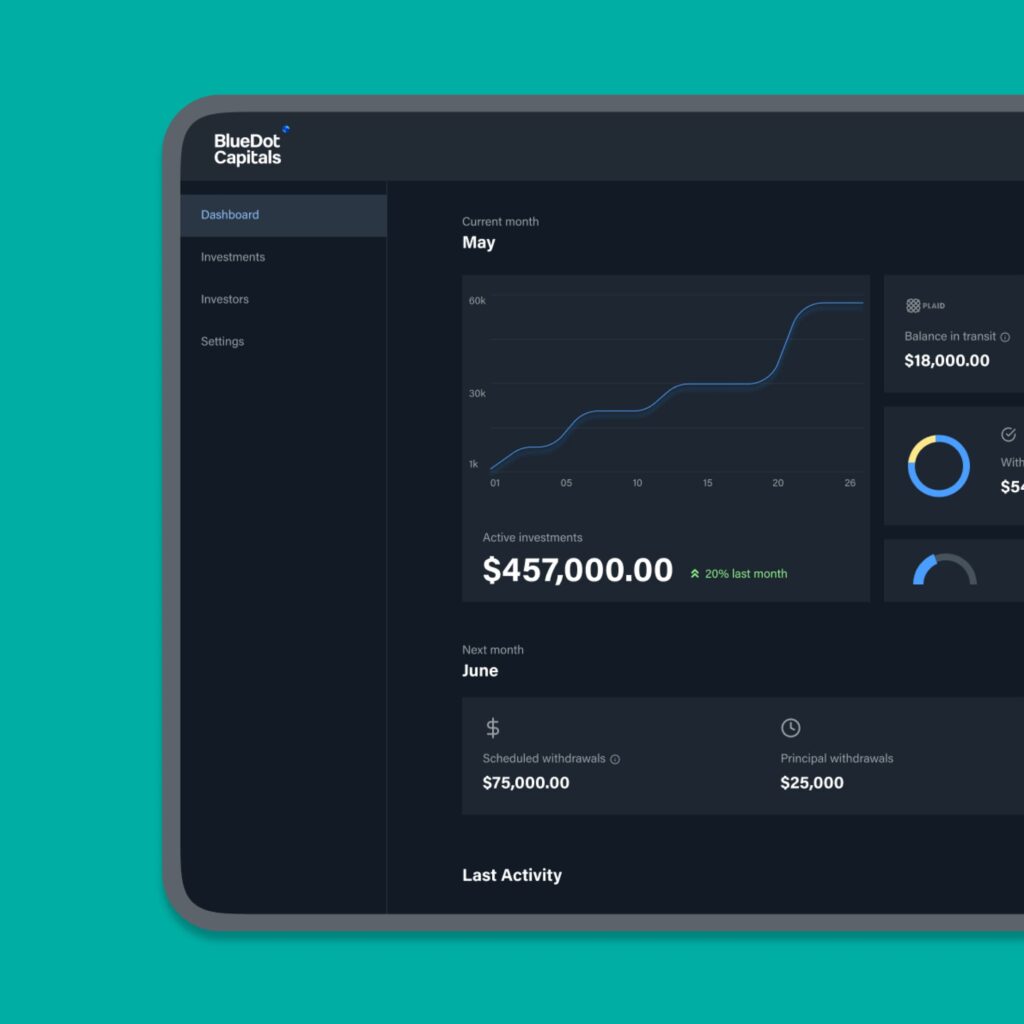Blog
How to Find and Vet Developers in Eastern Europe & Latin America

I. Introduction
Finding skilled and experienced software developers is a crucial and often tedious endeavor. As a founder or company leader, you recognize that the success of your software development projects relies heavily on the expertise and talent of your development team. In this article, we will embark on a journey to discover effective platforms and strategies for locating top-notch developers in Eastern Europe and Latin America.
Eastern Europe and Latin America have emerged as thriving regions, renowned for their wealth of skilled software developers who offer a great mix of experience, skill, and affordability.
Their exceptional technical proficiency and extensive experience have become highly sought after by companies worldwide.
Exploring the opportunities and strategies available in this region can significantly enhance your chances of finding the right talent for your software development needs.
However, this search can be particularly challenging, especially if you have limited technical experience.
Even if you possess limited technical expertise, this article will equip you with valuable insights and practical tips to navigate the recruitment process with confidence.
Scale your development and software with confidence!
Master strategy, roadmap, and code execution and start to ship more on each sprint.
II. The Power of Google: Proactive Hunting for Talented Developers
A. Introduction to Google as a talent sourcing tool
Google has become an indispensable tool for talent sourcing and candidate discovery. As a founder or company lead, harnessing the power of Google can significantly expand your reach and enable you to proactively hunt for talented developers in Eastern Europe and Latin America
B. Conducting targeted searches using advanced search operators
Google offers a range of advanced search operators that can help you refine your search and target specific criteria when seeking developers.
Simply key in the services you are looking for, for example – JavaScript Developer in Eastern Europe or Python Developer in Latin America, and Google will do the rest. It will find sites or services and resources that closely match your search and it’s now up to you to drill down and find who you want.
One of the strategies you can use is to incorporate quotation marks (“ “) in your search. This tells Google to only provide you with the specific results that match the phrases you have within the quotations
If you are open to multiple types of developers, use ‘OR’ (in caps) to tell Google you’re interested in pages that include either term. For instance, “Java OR Python software developer”.
If there’s something specific you don’t want in your search, use the minus sign (-). For instance, if you want a software developer, but not a front-end developer, you can search “software developer -front-end”.
The rise of generative AI tools like Bard and ChatGPT will also see a significant increase in the ability to source and find developers faster and easier. You can use these tools to get a more refined and specific search result.
C. Exploring industry-specific forums, groups, and communities
In addition to traditional recruitment channels, exploring industry-specific forums, groups, and communities can be a fruitful strategy for finding talented developers in Eastern Europe and Latin America.
These online spaces serve as hubs for developers to connect, collaborate, and share knowledge.
Engaging in these communities can help you identify potential candidates for your software development needs and also network and find potential clients!
Here are a few examples of industry-specific forums, groups, and communities that are popular among developers in Eastern Europe and Latin America:
- Stack Overflow: Stack Overflow is a widely recognized platform for developers to ask questions, share knowledge, and engage in discussions related to programming and software development. It features an extensive community of developers, including many from Eastern Europe and Latin America.
- GitHub: GitHub is a web-based platform for version control and collaboration, widely used by developers to host, review, and contribute to software projects. Exploring popular repositories and participating in relevant discussions on GitHub can help you identify developers with the skills and expertise you require.
- Dev.to: Dev.to is a community-driven platform where developers share articles, tutorials, and insights related to software development. It offers a vibrant community that actively engages in discussions and provides a valuable space to connect with developers in Eastern Europe and Latin America.
- LinkedIn Groups: LinkedIn groups focused on software development, programming languages, or specific tech stacks can serve as valuable resources for connecting with developers. Joining and actively participating in these groups can help you expand your network and identify potential candidates.
- Meetup Groups: Meetup is a platform that facilitates offline networking events and gatherings. Many cities in Eastern Europe and Latin America host regular meetups related to software development, coding, and technology. Attending these events allows you to meet developers face-to-face, build relationships, and discover potential candidates.
Remember, when engaging in these forums, groups, and communities, it’s important to approach interactions with authenticity and respect.
Actively participate, share your expertise, and contribute to meaningful discussions.
D. Strategies for reaching out to potential candidates

When you identify potential candidates through your Google searches or by exploring forums and communities, it’s essential to employ effective strategies to reach out to them.
1. Personalized messages and emails
Craft personalized messages and emails that demonstrate your genuine interest in them and not just in their skills and experience. Personalization shows that you have taken the time to understand their background and can help establish a connection. However, keep in mind that your messages might end up in spam unless you check your SPF records, avoid trigger words, and use a reliable email service provider with a good reputation.
2. Showcasing company culture and exciting projects
Highlight your company’s unique culture and the exciting projects your team is working on. Developers are often attracted to companies that offer stimulating challenges, have a great culture, and offer growth opportunities.
3. Offering competitive compensation and growth opportunities
In your outreach, try and emphasize a competitive compensation package and growth opportunities within your organization. As you may already know, the competition for talented developers is quite high.
Remember, talented developers are often motivated by factors beyond just salary, such as professional development and career advancement prospects.
E. Pro tips for successful candidate outreach and engagement
To maximize the success of your candidate outreach efforts, consider implementing these pro tips:
- Be concise and respectful of candidates’ time when reaching out.
- Tailor your messages to each candidate, showcasing how their skills align with your specific needs.
- Follow up promptly and professionally to maintain engagement and build relationships.
- Leverage your network and referrals to establish connections with potential candidates.
- Continuously improve and refine your outreach strategies based on feedback and results.
III. Freelancing Platforms: A Treasure Trove of Independent Developers
A. Introduction to freelancing platforms
Freelancing platforms have revolutionized the way companies find and hire independent developers.
These platforms provide a vast pool of talented professionals who offer their services on a project basis, making them an excellent resource for finding skilled developers in Eastern Europe and Latin America.
📖 Blog
B. Benefits of using freelancing platforms for hiring developers
- Access to a diverse talent pool: Freelancing platforms bring together developers from various backgrounds and skill sets, allowing you to find the right fit for your specific project requirements.
- Flexible hiring options: You can hire developers on a per-project basis, providing flexibility and scalability for your development needs. Whether you need developers for a short-term engagement or a permanent hire, freelancing platforms can accommodate your requirements.
- Cost-effectiveness: Freelancers often offer competitive rates compared to traditional hiring options, making it a cost-effective choice for companies, especially startups or those with limited budgets.
C. Tips for successful hiring on freelancing platforms

Hiring developers on freelancing platforms requires a strategic approach to ensure successful outcomes. Consider the following tips to enhance your hiring process and find the right candidates for your projects:
Creating a detailed job description: Take your time to create a comprehensive and detailed job description that clearly outlines the specific skills, experience, and project requirements you are seeking.
Be specific about the technologies, programming languages, and tools relevant to your project. This helps attract candidates who possess the necessary expertise and filters out those who may not be the right fit.
Conducting thorough vetting and interviewing processes: Make sure you thoroughly review candidates’ profiles, portfolios, and previous work samples. Look for indications of their technical proficiency, relevant experience, and project successes.
When shortlisting candidates, consider conducting interviews or technical assessments to gauge their problem-solving abilities, communication skills, and compatibility with your team.
Establishing clear project milestones and expectations: Define your project milestones and expectations in collaboration with the selected freelancer. This includes setting realistic timelines, deliverables, and any specific project requirements.
Establishing a transparent and effective communication channel is crucial to ensure that both parties are aligned on project goals and deliverables.
D. Pro tips: How can you effectively navigate freelancing platforms and select the right candidates
Consider the following pro tips to enhance your experience and increase your chances of finding the ideal freelancers:
Build a clear understanding of your project needs: Before starting your search, have a clear understanding of your project requirements, including the specific skills, experience level, and project scope.
This clarity will help you narrow down your search and find candidates who align with your needs.
Review profiles and portfolios thoroughly: Take the time to review candidates’ profiles and portfolios in detail. Look for indicators of their expertise, experience, and the quality of their past work.
Pay attention to relevant projects they have completed, client feedback, and ratings. This will give you valuable insights into their capabilities and professionalism.
Assess communication and responsiveness: Effective communication is crucial when working with freelancers. Pay attention to candidates’ responsiveness, clarity in communication, and ability to understand and articulate project requirements.
Prompt and professional communication is a key indicator of their reliability and commitment to the project.
Evaluate reviews and ratings: Consider the feedback and ratings provided by previous clients on the freelancing platform.
Look for patterns of positive reviews, reliability, and quality of work. While one or two negative reviews may not necessarily be a deal-breaker, evaluate them in the context of the overall feedback to make an informed decision.
Test skills and compatibility: For shortlisted candidates, it’s important to test their skills through a small project or a technical assessment.
This can provide insights into their problem-solving abilities, code quality, and their compatibility with your project and team dynamics.
Prioritize collaboration and cultural fit: Assess how well candidates can collaborate with your team and adapt to your company culture. Look for individuals who can work independently, show proactivity, and effectively communicate and collaborate with your internal stakeholders.
IV. Clutch: Discovering Leading Developer Companies
A. Introduction to Clutch
Clutch is a prominent platform that provides valuable insights and information about leading developer companies. It serves as a resource for companies and individuals seeking reputable software development partners.
B. Advantages of leveraging Clutch for finding developer companies
Trustworthy and reliable information: Clutch is known for its stringent evaluation process, ensuring that the listed developer companies are reputable and reliable.
This gives you confidence in the quality and credibility of the information provided on the platform.
Comprehensive profiles and portfolios: The platform offers detailed profiles and portfolios for each developer company, providing in-depth information about their expertise, past projects, and areas of specialization.
This allows you to comprehensively understand their capabilities and assess their suitability for your specific needs.
Client reviews and ratings: One of the significant advantages of Clutch is the availability of client reviews and ratings. These reviews provide valuable insights into the experiences of previous clients who have worked with developer companies.
You can learn about their strengths, communication skills, responsiveness, and overall satisfaction with the services provided.
Market presence and recognition: Developer companies listed on Clutch often have established market presence and industry recognition.
This indicates that they have demonstrated their expertise, built a positive reputation, and gained the trust of their clients. It helps you identify companies that have a track record of delivering quality work.
Comparison and shortlisting capabilities: Clutch enables you to compare multiple developer companies side by side, making it easier to evaluate their offerings, client feedback, and areas of expertise.
This comparison feature streamlines the shortlisting process and allows you to focus on the companies that best align with your project requirements.
C. How to utilize Clutch effectively
1. Researching and shortlisting reputable developer companies
Utilize the platform’s search functionality and filters to research and shortlist developer companies that align with your project needs. Consider factors such as industry expertise, project size, and client reviews during your evaluation process.
2. Analyzing client reviews and ratings
Pay close attention to client reviews and ratings provided on Clutch. These reviews offer firsthand insights into the experiences of previous clients, highlighting the strengths and areas of expertise of the developer companies.
Consider the overall sentiment and feedback to gauge their reliability, professionalism, and the quality of their work.
3. Reaching out to selected companies for further discussions
Once you have identified potential developer companies, reach out to them to initiate further discussions. Share details about your project, objectives, and expectations. This allows you to gauge their responsiveness, communication style, and ability to understand your project requirements.
D. Pro tips for engaging with developer companies through Clutch
- Prepare a list of specific questions and requirements to discuss with the developer companies.
- Request case studies or examples of similar projects they have completed.
- Inquire about their team composition, expertise, and project management methodologies.
- Assess their ability to understand your business goals and provide suitable solutions.
- Consider scheduling video calls or meetings to establish a more personal connection and assess their professionalism and communication skills.
V. Pro Tips for Effective Developer Recruitment
A. Importance of proactive candidate invitation
In the competitive landscape of developer recruitment, being proactive is key to attracting top talent. Instead of solely relying on publishing job postings and waiting for candidates to apply, take an active approach by inviting promising developers to join your recruitment process.
The most talented developers are often already engaged in projects and may not actively search for new opportunities.
B. Strategies to attract busy, talented developers:
1. Craft compelling job descriptions
Create job descriptions that not only list technical requirements but also highlight the unique aspects of your company and the specific challenges and opportunities associated with the role.
This helps capture the attention of talented developers who are seeking engaging and meaningful work.
🎙️ Podcast
Secrets from 15 years of managing remote-first engineering teams with Hannes Kleist, from Stanwood
2. Highlight unique company culture and benefits
Showcase your company’s culture, values, and employee benefits. Talented developers seek environments that foster growth, collaboration, and innovation.
Highlighting your unique company culture can attract developers who align with your values and are motivated by more than just financial compensation.
3. Showcase exciting projects and growth opportunities
Developers are often motivated by the chance to work on exciting and challenging projects. Highlight any notable projects your company has undertaken and emphasize the potential for professional growth and career advancement within your organization.
4. Leverage professional networks and referrals
Tap into your professional networks, industry connections, and employee referrals to identify and engage with talented developers. Referrals from trusted sources can be an effective way to reach developers who may not be actively searching for new opportunities.
C. Building and nurturing long-term relationships with developers
Developers appreciate long-term relationships based on trust, respect, and mutual growth. It’s important to invest in building relationships beyond the recruitment process. This can be achieved by:
- Engaging in meaningful conversations: Show genuine interest in developers’ work, experiences, and goals. Regularly communicate and provide updates on your company’s projects and initiatives.
- Offering learning and development opportunities: Provide opportunities for skill development, continuous learning, and career advancement. Developers value companies that invest in their professional growth.
- Recognizing and rewarding achievements: Acknowledge and celebrate the accomplishments of developers. Offer incentives, promotions, and recognition programs to keep them motivated and engaged.
D. Creating a positive candidate experience throughout the recruitment process
A positive candidate experience leaves a lasting impression and helps attract top talent.
Ensure the recruitment process is transparent, efficient, and respectful by:
- Promptly acknowledging applications and providing updates on the hiring timeline.
- Offering clear and timely communication regarding interview rounds, expectations, and next steps.
- Providing feedback to candidates, even if they are not selected, to help them improve their skills and grow professionally.
- Creating a welcoming and inclusive atmosphere during interviews and assessments.
VI. Conclusion
In conclusion, we have explored various platforms and strategies to help you find skilled and experienced developers in Eastern Europe and Latin America
It is crucial to adopt a multi-faceted approach, combining different platforms and strategies, to cast a wider net and identify the most suitable candidates.
Eastern Europe and Latin America have emerged as a talent hub, offering a wealth of skilled developers with strong technical expertise and competitive rates.
For non-technical founders, it is important to remember that you can still navigate the recruitment process effectively, even without extensive technical knowledge.
Leveraging the available resources and strategies, such as proactive candidate invitations, crafting compelling job descriptions, highlighting company culture and benefits, showcasing exciting projects, and building long-term relationships with developers, you can attract top talent and foster successful collaborations.
Remember, finding the right developers is a dynamic and ongoing process. Stay adaptable, continuously refine your approach, and invest in building relationships with developers to foster a strong network of talent.
Recommended Read – ContactOut’s Definitive Guide to Talent Sourcing
At Trustshoring we help companies bring their ideas to life by building an MVP, catering to a growing user base by having the right product advisory in place, and even hiring developers with experience and skills you need from Eastern Europe and Latin America.
Are you looking to hire a developer? Get in touch with us today
Read more


Case study:
Blue Dot Capitals
Learn how Blue Dot Capitals Successfully Built an MVP for an Investment App.

What is the Purpose of a Product Roadmap

How to Hire a CTO? Non-Tech Founders’ Go-to Guide to Starting a Cooperation with a CTO

E-learning Platform: All You Need to Build a Successful Platform

How Much Does It Cost to Build Software or an App?
Create a free plan for growth
Speak to Victor and walk out with a free assessment of your current development setup, and a roadmap to build an efficient, scalable development team and product.
“Victor has been great. Very responsive and understanding and really knows his stuff. He can go the extra mile by tapping into his prior experiences to help your company out. Really enjoyed working with him.”
Founder of Agency360

Victor Purolnik
Trustshoring Founder
Author, speaker, and podcast host with 10 years of experience building and managing remote product teams. Graduated in computer science and engineering management. Has helped over 300 startups and scaleups launch, raise, scale, and exit.